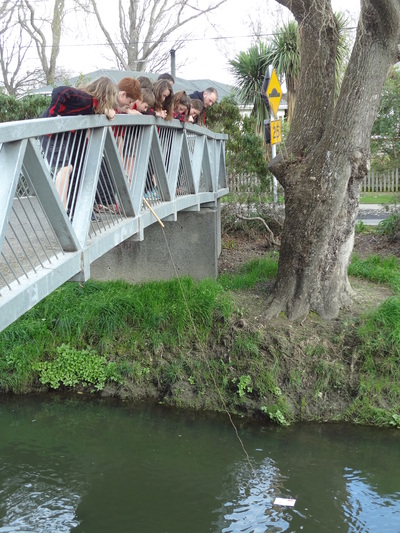'Sensing City' project launched in Christchurch
The Sensing City project will see sensors installed in Christchurch to collect real-time information about how a city actually works. The first of three Sensing City pilot projects, which allows residents to test their own water quality, the project launched in September.
Sensing City will collect data on a range of variables including pedestrian and vehicle traffic flow, water and air pollution, to improve how the city functions.
The first pilot project allows members of the public to test river water quality in the city through easy-to-use Little Water Sensor kits created by MIT (Massachusetts Institute of Technology).

200 sensor kits have been distributed to students who will be measuring water quality along Christchurch’s waterways. The kits test for levels of potassium hydride, nitrite, hydrogen and general hardness in the rivers that flow through the city.
“The rebuilding of Christchurch following the 2011 earthquakes presents an extraordinary opportunity to fit the city with sensors and hardware, to collect data that will improve the functionality of the city and the lives of its residents. However, what’s key to Sensing City is that we also want the people of Christchurch to be able to collect data about what’s important to them, and the first of our pilot projects is designed with that in mind,” said Roger Dennis, Founder, Sensing City.
Hon Gerry Brownlee, Minister for Canterbury Earthquake Recovery, said: “Sensing City is an extraordinary global opportunity to be able to better understand how cities really work, and to use that knowledge to meet some of the urbanisation challenges of the 21st century.”
Smart cities specialists at Arup are working with Roger Dennis to implement the Sensing City program and sensor network in Christchurch. The results from the river water testing pilot can be viewed at www.littlewatersensor.com and all the data from the Sensing City project will be made available for academic as well as commercial uses.
Volker Buscher, director and UKMEA IT and communications systems leader, Arup, said: “An intelligent city not only reduces carbon emissions but it attracts talent and investment through high-quality services and the efficiency of its infrastructure, which makes it a fantastic place to both work and live. Cities must create a thriving information marketplace to achieve these aims and with the Sensing City concept in Christchurch we’re doing just that. Other cities across the globe can take inspiration from Sensing City; if they don’t start to invest in smart technologies more strategically, they will soon find themselves unable to capture the full potential of a smarter society.”
The next two pilot projects in the Sensing City initiative will be launched in the next three months, with the first focusing on communicating real-time information about a massive, complex road rebuilding program and the second on understanding environmental variables in regard to respiratory illness.
Supermarket giant now powered using 100% renewables
The milestone is projected to deliver a reduction of over 74% in operational emissions, moving...
CAWSYD26 to spotlight local climate solutions
The program highlights have been announced for Climate Action Week Sydney, held on 9–15...
10 lessons found to improve urban sustainability experiments
The research studied almost 2000 urban experiments and identified 10 lessons that provide a...








